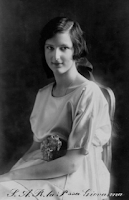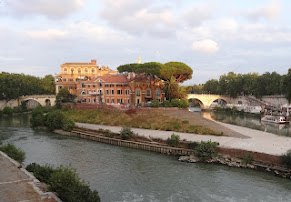Alberto Lattuada – film director
Versatility and eye for talent made him leading figure
A leading figure in Italian cinema, Alberto Lattuada was born on this day in 1914 in Vaprio d’Adda in Lombardy. Lattuada was the son of the composer Felice Lattuada, who made him complete his studies as an architect before allowing him to enter the film business. As a student, Lattuada was a member of the editorial staff of the antifascist publication Camminare and also of Corrente di Vita, an independent newspaper. Corrente di Vita was closed by the Fascist regime just before Italy entered the Second World War. Lattuada, who is said to have detested fascism, helped to organise a screening of a banned anti-war film at about this time, which got him into trouble with the police. In 1940 Lattuada started his cinema career as a screenwriter and assistant director on Mario Soldati’s Piccolo mondo antico (Old-Fashioned World). He directed his own first movie, Giacomo l’idealista (Giacomo the Idealist) in 1942. In 1950 he co-directed Luci del varietà with Federico Fellini. This was the first film directed by Fellini. Read more…
____________________________________
Agostina Livia Pietrantoni - saint
Tragic sister’s simple virtue stopped the traffic in the capital
Nun Agostina Livia Pietrantoni died on this day in 1894 in Rome after being attacked by a patient at the hospital where she was working. Her story touched Romans so deeply that her funeral brought the city to a standstill as thousands of residents lined the streets and knelt before her casket when it passed them. The November 16 edition of the daily newspaper Il Messaggero reported that a more impressive spectacle had never before been seen in Rome. ‘From one o’clock in the afternoon, the streets close to Santo Spirito, and all the roads it was believed that the funeral procession would pass, were crowded with people to the point of making the flow of traffic difficult.’ Sister Agostina was beatified by Pope Paul VI in 1972 and canonised by Pope John Paul II in 1999. Her feast day is celebrated each year on November 12. Sant’Agostina was born Livia Pietrantoni in 1864 in Pozzaglia Sabina to the north east of Rome. She was the second of 11 children born to a poor farmer and his wife. She started work at the age of seven doing manual labour, carrying heavy sacks of stones and sand for road construction. Read more…
____________________________________
Dacia Maraini – writer
Long career of a feminist novelist and playwright
Novelist and short story writer Dacia Maraini was born on this day in 1936 in Fiesole in Tuscany. An Italian female writer who is widely recognised abroad, Dacia Maraini is also a respected critic, poet, journalist and playwright. She established la Maddalena, the first Italian theatrical group composed exclusively of women. The themes of limitation and oppression in Maraini’s writing have their roots in her childhood years, which she spent in a concentration camp in Japan. She then went to live in Sicily, which she has also described as an oppressive setting. Her writing expresses the concerns of the Italian feminist movement, focusing on issues such as abortion, sexual violence, prostitution and the mother/daughter relationship. Many of her works are autobiographical and are written in the form of diaries and letters. Maraini lived with the writer Alberto Moravia from 1962 until 1983 and was a close friend of Pier Paolo Pasolini and Maria Callas. She was the daughter of Sicilian princess Topazia Aliata di Salaparuta, who was an artist, and Fosco Maraini, a Florentine ethnologist. When she was still a young child, Maraini’s family moved to Japan to escape Fascism in 1938. They were interned in a Japanese concentration camp. Read more…
______________________________________
Gioachino Rossini - composer
Italian composer who found the fast route to wealth and popularity
One of Italy’s most prolific composers, Gioachino Rossini, died on this day in France in 1868. He wrote 39 operas as well as sacred music, songs and instrumental music. He is perhaps best remembered for, The Barber of Seville (Il barbiere di Siviglia), and Cinderella (La Cenerentola). Rossini was born into a musical family living in Pesaro on the Adriatic coast in 1792. During his early years his mother earned her living singing at theatres in the area and he quickly developed musical talent of his own. He made his first and only appearance on stage as a singer in 1805 but then settled down to learn the cello. His first opera, The Marriage Contract (La cambiale di matrimonio), was staged in Venice when he was just 18. In 1813 his operas, Tancredi and L’italiana in Algeri, were big successes in Venice and he found himself famous at the age of 20. The Barber of Seville was first produced in Rome in 1816 and was so successful that even Beethoven wrote to congratulate Rossini on it. The composer became wealthy and in big demand and travelled to Austria, France and England. Read more…
_______________________________________
Giovanna of Italy - Tsaritsa of Bulgaria
Daughter of King of Italy who married Tsar Boris III
The girl who would grow up to be Ioanna, Tsarista of Bulgaria, was born Princess Giovanna Elisabetta Antonia Romana Maria of Savoy on this day in 1907 in Rome. Giovanna’s father was King Victor Emmanuel III, who was Italy’s monarch through two world wars from 1900 until he abdicated in 1946 just as Italy was about to become a republic. Her mother was Queen Elena of Montenegro. At the age of 22, Princess Giovanna became Tsarista Ioanna - the last Tsarista - after marrying the Tsar of Bulgaria, Boris III, in the Basilica of St Francis in Assisi. It was the hope of the Italian royal family that the marriage would strengthen their relationship with the Balkan states. The marriage lasted until Boris’s death in 1943 at the age of just 49. The Tsar had fallen ill during a trip to Germany to discuss Bulgaria’s role in the Second World War as a member of the Axis bloc and there were suspicions that he was poisoned on the orders of Hitler. Bulgaria had agreed to join the Axis under the threat of invasion by the Germans, who wanted to use their territory to launch an attack on Greece, but the Tsar was said to be appalled at Hitler's massacres of Jews. On two occasions he refused orders to deport Bulgarian Jews. Read more…





.jpg)


.jpg)


.jpg)
.jpg)
.jpg)





